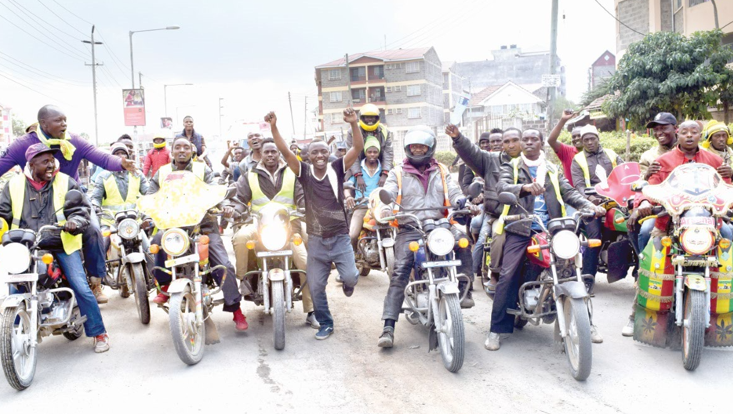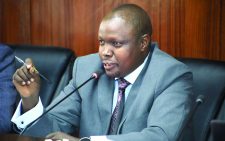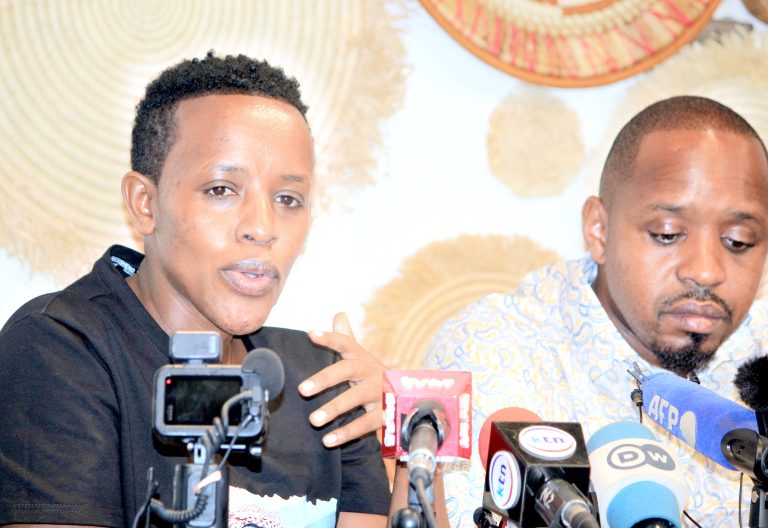‘Buy now, pay later’ lenders warned on exorbitant charges

The Digital Financial Services Association of Kenya has warned of stern action against members who take advantage of vulnerable groups to charge exorbitantly for property acquired through hire purchase.
DFSA chair Kevin Mutiso, who described the extra-collateral charges as criminal, also denied reports their members were taking advantage of the motorbike operators to charge double the market price of bikes acquired on hire purchase.
He, however, cautioned boda boda operators to undertake due diligence to ensure they go to credible firms.
“The problem arises from the many defaults on repayments due to the poor performance of the economy. Eight out of 10 boda bodas on our streets have acquired motorbikes through the Buy Now, Pay Later (BNPL) system,” Mutiso told People Daily yesterday.
He, however, revealed that BNPL players end up charging the loanees some extra money as interest and due to the weakening of the shilling against the US dollar.
He said the price of a motorbike is currently retailing at between Sh130,000 and Sh180,000 due to the sharp rise of the dollar against the local currency.
Higher interest
For an individual to acquire such a motorbike, Mutiso said, he or she would be required to pay a deposit ranging between Sh40,000 and Sh50,000 as well as undertaking to repay the balance through daily or weekly remittances for a period not exceeding 24 months.
“The scheme is like a loan and those taking the motorbike must be prepared to pay with the interest accrued. People should also know the longer the period one takes to repay the loan, the higher the interest the principal amount attracts,” Mutiso explained.
The DFSA chairman was responding to a story carried by People Daily narrating the agony some boda boda operators who acquired their motorbikes through the BNPL system have been subjected to.
Some operators narrated how they had fallen prey to some BNPL players who had ripped them off by charging them twice the market price of motorcycles.
A case was cited where an individual ended up paying Sh211,200 after 18 months. With M-Pesa charging Sh27 for every transaction plus the Sh12,000 deposit. The individual ended up coughing out Sh237,456 for a motorbike that retails at between Sh100,000 and Sh130,000 market price.
One of the operators, Enock Wambua, based in Kitengela, Kajiado County showed People Daily copies of receipts of payments for his motorbike. He has so far paid Sh185,600 and still has a long way to go before he clears the loan.
Ordinarily, his motorcycle model costs between Sh110,000 and Sh130,000 depending on the location of the retailer, but he is required to pay a total of Sh245,000 when he is done with payments through hire purchase.
Repossessed
Another operator, Darius Akumonyo, a resident of Ikolomani constituency, Kakamega county has opted to abandon the boda boda business after his motorbike was repossessed for defaulting on the repayment for one month.
“I paid a deposit of Sh25,000 for a Honda motorbike after which we agreed that I would pay Sh15,000 per month for 21 months. I took good care of the motorbike and religiously paid for 18 months without any failure,” Akumonyo narrated.
He said the lender turned down all his pleas even after raising Sh30,000 to clear the two month backlog and repossessed his motorbike.
But speaking to People Daily by phone, Mutiso said those exorbitantly charging boda boda operators were not their members.
Mutiso said they charge interest rates based on the prevailing market rates that are determined by the Central Bank of Kenya (CBK).
Besides, he disclosed they acquire the motorbikes through loans from various financial institutions, some who lend them in dollars.
“For example at the moment, the Kenyan shilling has sharply weakened against the dollar so the loans acquired in the foreign currency are a bit expensive. But we have to pass all this to loanees,” Mutiso said.
He said all BNPLs have elaborate recovery systems used to deal with defaulters, which entails the defaulter being summoned to explain the reasons for defaulting.
“After the meeting, the individual is given a notice of 45 days to come up with a clear plan on how he or she would make the repayments that would also include some surcharge fee for defaulting. Once both parties come to an agreement, they sign a new contract,” he explained.









